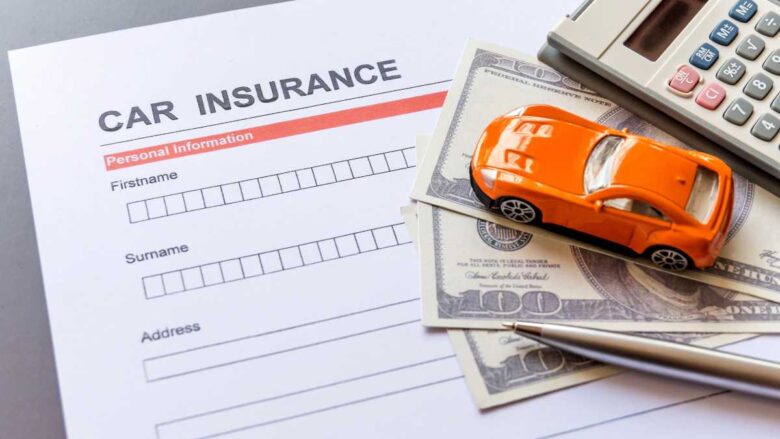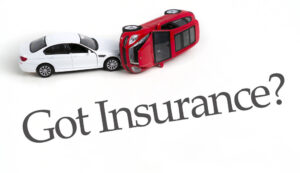Having the correct tools and resources is important when it comes to running a business. For many companies, commercial vehicles are not just assets, but their very lifeblood. These vehicles help one in carrying goods from one place to another, reaching the clients and ensuring that businesses keep moving. Nevertheless, great responsibility comes with even greater risk. Thus, this is where commercial vehicle insurance steps in.
Sometimes it can be overwhelming to navigate through the insurance world. It is important to understand what you need for your commercial fleet due to the number of options available and changing regulations. This guide will break down everything concerning why this type of insurance is necessary as well as tips on how to save money while still covered adequately. Let’s jump into protecting your investment from essentials regardless of whether you have been into entrepreneurship previously or you have recently started!
Why Commercial Vehicle Insurance Is Essential
Commercial vehicle insurance is crucial for businesses that depend on cars in their operations. Frequently, such cars are exposed to various threats including transportation of goods and services provision respectively. Accidents can occur at any time resulting in loss of your employees’ lives and destruction of property belonging to them as well as the company itself without proper coverage; just one event could lead to wide financial losses.
Moreover, some states legally require companies operating commercial vehicles to obtain insurance for them or face serious penalties such as fines or revocation of business licenses. Failure to do so may result in heavy penalties including fineserious penalties monetary fines or revoking licenses. Insurance also provides peace of mind because it assures you that things like theft, damage, or liability claims have been catered for by someone else so that you can concentrate on growing his/her business rather than worrying about unforeseen events.
Factors Affecting Insurance Rates
Insurance rates for commercial vehicles are influenced by several key factors. One major element is the type of vehicle being insured. Heavy-duty trucks often come with higher premiums compared to vans or smaller vehicles due to their value and potential repair costs. Driving history also plays a critical role. A clean record can lead to lower rates, while accidents or violations might spike your premium significantly.
Besides, business size can influence the cost. Although larger fleets may be offered discounts on bulk purchases, they still face greater overall expenses based on increased liability risks. Premium levels are directly influenced by the coverage selected. Comprehensive policies that provide additional perks like roadside assistance generally cost more than simple schemes that focus only on liability.
Choosing the Right Insurance Provider
The right insurance provider will ensure that you have fully secured your commercial vehicle. Before choosing an insurer consider researching companies that specialize in covering commercial entities as they may have custom options for you.
Check whether the insurer has a good reputation through reviews and ratings from trusted sources that can give insights about their customer service and how they handle claims. When you need help, especially during emergencies, being responsive makes all the difference.
Examine available policy options. Some insurers offer plans that can be customized depending on what is best for one’s enterprise. This flexibility thus allows one to avoid paying for unnecessary insurance policies. Additionally, pricing matters but it should not override everything else, balance cost with quality of service and policy features to make sure you are well covered without having to spend too much money.
Requirements for Important Insurance Documents
It is important to have the right documents together when applying for commercial vehicle insurance. This helps in streamlining the process and getting accurate quotes. Begin with the details of your business. Provide your business name, address, and contacts. These are the basics that will set up a good foundation for your application.
The second thing that you need to include is information about vehicles. Make sure that you give out all the necessary details including make, model, year of manufacture as well as vehicle identification number (VIN). With this data in mind, one can then choose how much coverage he/she needs. Ensure that you get driver’s details too; collect driving records and licenses of all authorized drivers so that insurers can assess their history to determine risk factors concerning them — they would help you protect commercial vehicles faster.
Tips for Lowering Insurance Costs
Cutting costs related to insurance can be very wise among entrepreneurs who run businesses. is it not? The first step should be shopping around and comparing quotes from different providers. Different firms provide varying rates on similar covers. Nevertheless, you might think about having a higher deductible. High deductibles usually lead to lower premiums but ensure that it is affordable enough in case there are any claims made against it. However, installing gadgets like GPS tracking systems or anti-theft devices in our cars would also minimize further financial output because some insurers may even give us discounts. Ask if there are multiple policies involved. If possible bundle such policies together; combining commercial vehicle insurance with other types like general liability or property coverage saves a significant amount for many companies. It is always important to keep a clean driving record. Such actions lead to fewer accidents and claims resulting in reduced prices at later times. Select training programs focused on safe driving for company car users primarily.
Conclusion
Selecting appropriate insurance cover for ‘your’ commercial vehicle is highly essential since this aids in safeguarding business assets and keeping within the law. Understanding the fine print behind these coverage types will also guide you in making informed decisions as well. It is important to know that each policy is tailored to meet specific needs, hence find out which best suits your enterprise.
Do not forget to shop around. Various suppliers offer differing charges and policies that can help you save money without endangering your safety. This means that by shopping for insurance proactively, you protect your vehicles as well as improve overall operational efficiency. The value of extensive research cannot be gainsaid.
FAQs
1. What Is Commercial Vehicle Insurance?
This type of insurance covers vehicles used predominantly for commercial purposes. This can include providing coverages such as liability, collision, or comprehensive that are specific to business needs.
2. Who Needs Commercial Vehicle Insurance?
Any company using company cars should think of purchasing commercial vehicle insurance; it could be a delivery firm, builder, or any organization having a fleet of cars and trucks.
3. Can Personal Auto Insurance Cover My Commercial Vehicle?
Most likely no; personal auto policies typically exclude coverage for work-related autos. If you mainly use your car or truck for work duties, it is very crucial to have a separate commercial policy in place.
4. What can I do to reduce my commercial vehicle insurance premium?
These include maintaining a good driving record, combining covers under one insurer, increasing deductibles whenever possible, and analyzing insurance needs with an advisor regularly.
5. Can this happen if there is no coverage in place?
If you have no such policy in place, then the consequences of doing so could be grave including being fined by your state and other authorities or having a higher premium due to the perceived risk of your past behaviour.
6. Is there any difference in commercial vehicle insurance coverage?
Oh yes! Options provided differ widely depending on the enterprise’s specifics but usually consist of liability (for damage caused), collision (for accident-related damages), comprehensive (for non-collision accidents), and uninsured/underinsured motorist coverage.




